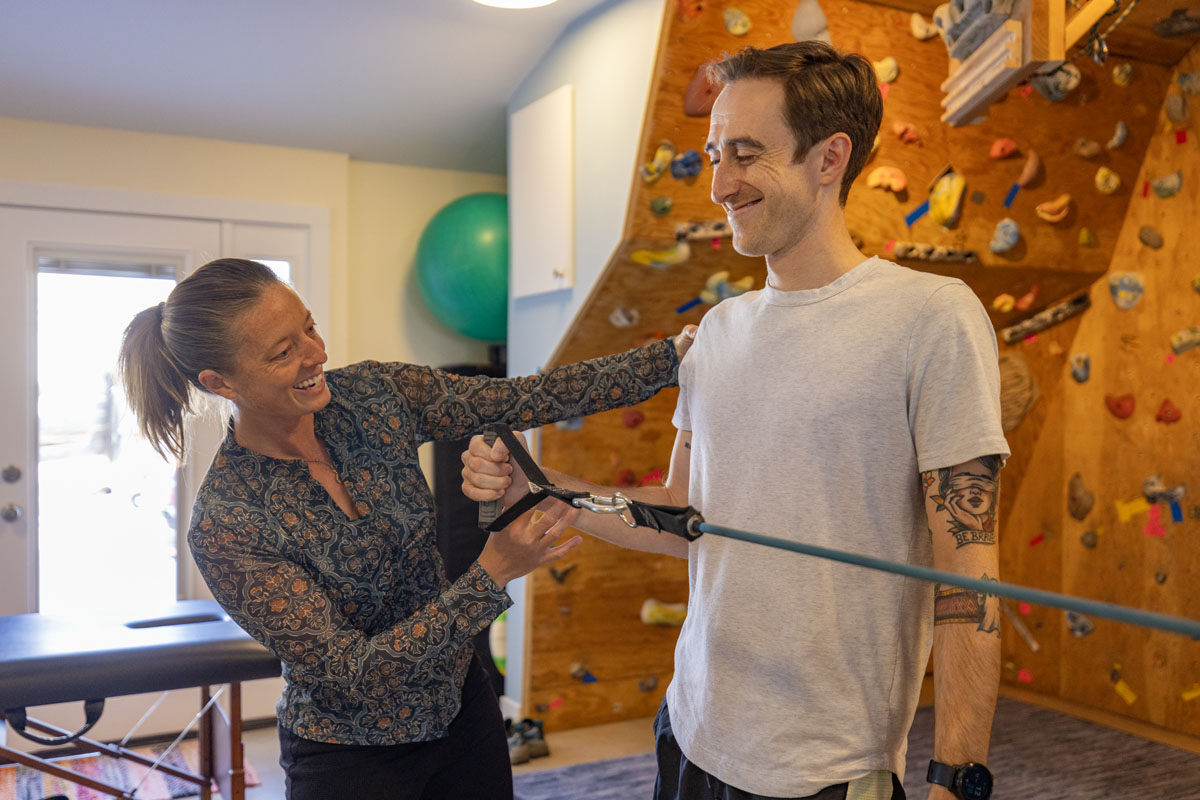A common injury for which people seek physical therapy in Boulder, Colorado is shoulder pain, which sometimes leads to the diagnosis of a rotator cuff tear. The diagnosis of a rotator cuff tear then leads to the question: Do I need surgery?
In 2024 a prospective cohort study was conducted to learn about 10-year outcomes of patients who did physical therapy and did not have surgery for the rotator cuff tear, and also to identify predictors of those patients who did choose to have surgery.1
Study Design: The patients who participated in this prospective cohort study were between the ages of 18 and 100 and had a diagnosed atraumatic (not resulting from injury or trauma), full-thickness rotator cuff tear. The patients performed physical therapy for 6-12 weeks and were allowed to discontinue physical therapy to elect surgery at any time during the treatment. Outcomes were monitored five times over 10 years.
Predictors of Surgery Over Time: <30% of the study sample had undergone surgery by the end of the 10 year period. One of the strongest predictors of whether a patient would pursue surgery at any point in the 10 years was patient expectation. If the patient did not expect physical therapy to be helpful, they were more likely to pursue surgery. Other predictors of surgery included smoking, Workers’ Compensation status, the amount of tear retraction, and shoulder activity level.
Physical Therapy Outcomes: Of the >70% of patient who did not undergo surgery, significant improvements in range of motion and pain were made in the first year of physical therapy that did not change much in 10 years.
Discussion: “Physical therapy was an effective treatment for >70% of patients, and the effect was durable to at least 10 years. In patients treated nonoperatively, PROMs did not decline over 10 years. Finally, patients undergoing physical therapy were unlikely to require reverse shoulder arthroplasty over the course of the 10-year follow-up.”
If you have shoulder pain or a diagnosed rotator cuff tear, you may benefit individualized physical therapy with Dr. Sarah Burkhardt.
or email sarah@seatosummitpt.com with any questions!
Enjoy learning about shoulder research? You may be interested in reading this blog about shoulder MRI findings in asymptomatic rock climbers!
- Kuhn, John E. MD, MS1,a; Dunn, Warren R. MD, MPH2; Sanders, Rosemary BA1; Baumgarten, Keith M. MD3; Bishop, Julie Y. MD4; Brophy, Robert H. MD5; Carey, James L. MD, MPH6; Holloway, Brian G. MD7; Jones, Grant L. MD4; Ma, C. Benjamin MD8; Marx, Robert G. MD, MS9; McCarty, Eric C. MD10; Poddar, Sourav K. MD10; Smith, Matthew V. MD5; Spencer, Edwin E. MD7; Vidal, Armando F. MD11; Wolf, Brian R. MD, MS12; Wright, Rick W. MD1. The Predictors of Surgery for Symptomatic, Atraumatic Full-Thickness Rotator Cuff Tears Change Over Time: Ten-Year Outcomes of the MOON Shoulder Prospective Cohort. The Journal of Bone and Joint Surgery 106(17):p 1563-1572, September 4, 2024. | DOI: 10.2106/JBJS.23.00978 ↩︎

